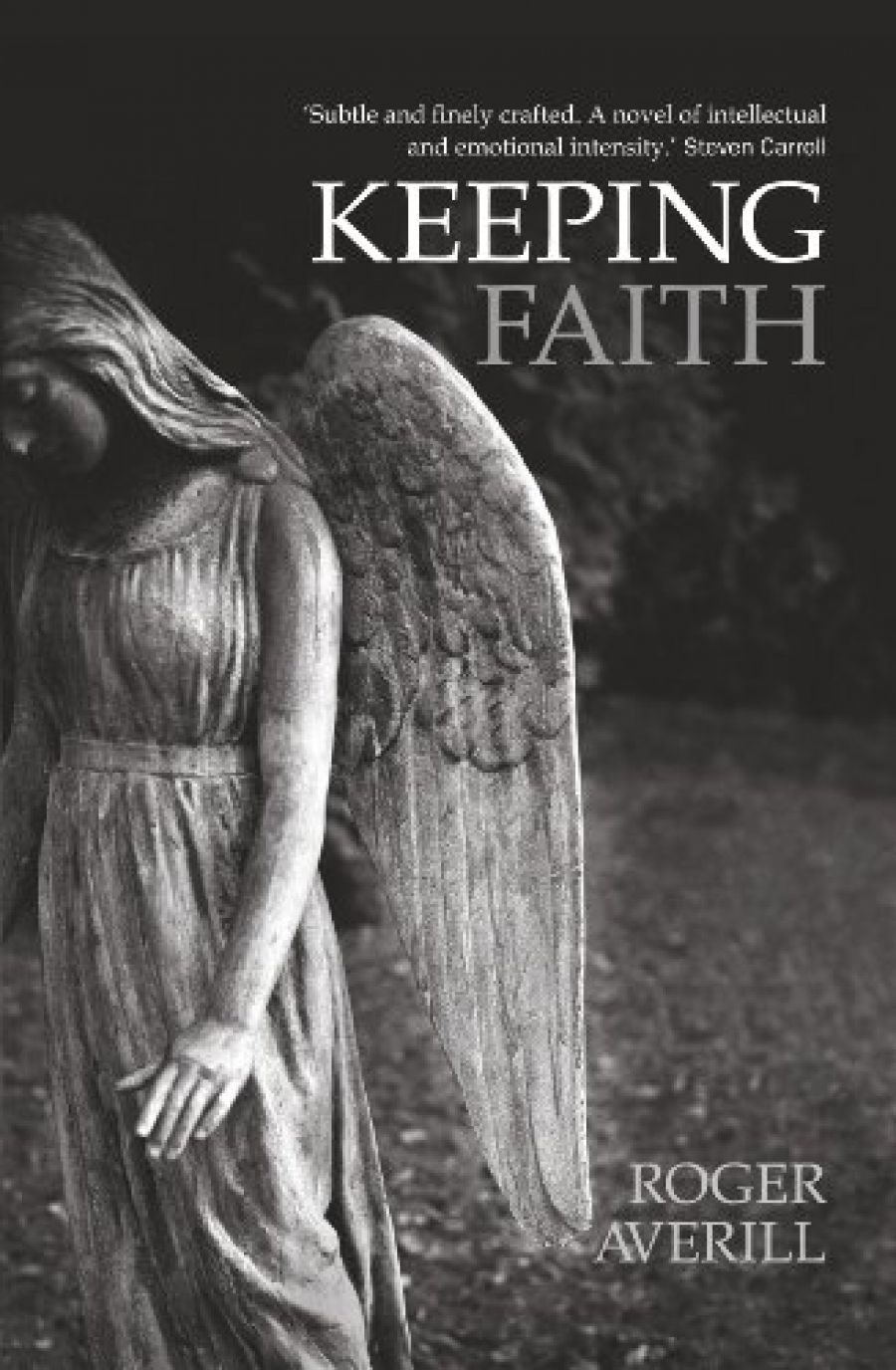
- Free Article: No
- Contents Category: Fiction
- Custom Article Title: Adam Rivett reviews 'Keeping Faith' by Roger Averill
- Review Article: Yes
- Article Title: Keeping faith
- Online Only: No
- Custom Highlight Text:
Keeping Faith, Roger Averill’s first novel after his non-fiction debut, Boy He Cry: An island Odyssey (2009), is a quiet and resonant piece of work. Befitting a novel set partly in a labour ward and beginning with a description of a stillborn baby, it proceeds with the knowledge that finding the right words can be difficult. It speaks carefully and tactfully, in a spare language of great focus.
- Book 1 Title: Keeping Faith
- Book 1 Biblio: Transit Lounge $29.95 pb, 233 pp
The novel moves across two periods of time. In the largest and strongest section of the book, set in mid-1970s suburban Melbourne, the childhoods of Josh and Gracie – raised by a lay preacher father and a doting mother – are surveyed. The familiar details of many male childhoods are skilfully evoked: awkward crushes, sexual daydreaming, patriarchal awe. This section, narrated by Josh, details a quiet loss of faith in his mother and his own dilemmas of belief.
The more contemporary sections of the book, set in the mid 1990s, are less convincing. While the scenes detailing Josh’s work as an assistant in a labour ward are among the book’s finest (Averill’s empathetic eye is particularly fine here), the scenes involving his sister Gracie’s work in a violent Papuan village are less successful. Though more driven by narrative and event than are other quieter sections of the book, they are tonally uncertain, and ill-fitting.
Despite this small flaw, Keeping Faith is a fine novel. What is most engaging is the book’s directness and unapologetic treatment of faith and loss. There is little room for irony or intellectualised disclaimers here. Averill honours the simple speech and pained questions of the grieving without reverting to rhetoric and knowing winks, trusting his nuanced prose to carry the necessary weight. His diligence and literary intelligence are a reader’s reward.


Comments powered by CComment